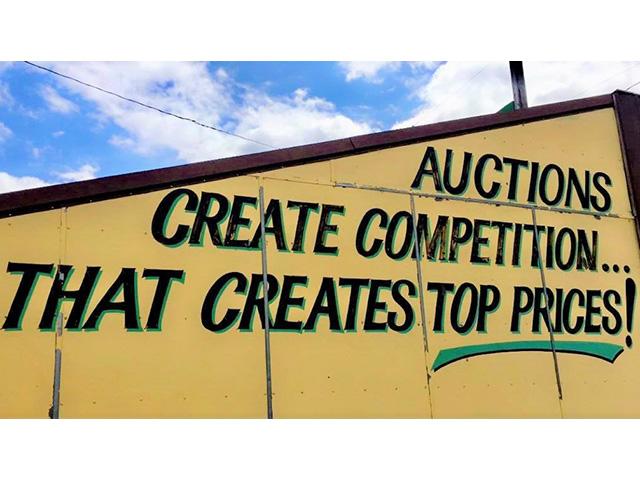Call the Market
Market Tactics to Consider When Selling Your Calves During a Rally
Watching this year's feeder cattle sales trickle in has been nothing short of invigorating, especially when one realizes that the market hasn't even fully come to terms with just how small our beef cow herd is and how that's going to redisperse the market's leverage. Monday afternoon (Aug. 15) the CME Feeder Cattle Index closed at $179.04, the highest point it traded at since late 2015 when the market was coming off its all-time high in 2014. The difference between the market today and in 2014 is that cattlemen are now awake and soberly aware of what the market could do in the next two to three years, and they are fully fixated on getting their fair share of the upcoming market's richness.
However, if cattlemen are not careful -- and even though they understand what the market is capable of in the upcoming years -- their old habits and old marketing strategies could cost them, as they rely on habit instead of new, pertinent market cues. Milton Erickson, the late American psychiatrist once said, "the most important thing in changing human behavior is the person's motivation."
So, I ask you, what's your motivation? Why does getting the highest price possible for your calves in this upcoming cycle matter to you? Is it for bragging rights? Is it to beat the mark you set back in 2014? Or is it because you're on your last hope of making a go at ranching?
Whatever your motivation may be, I hope it lights a fire deep in your soul and that you're willing to "out market" the markets to reach that goal.
P[L1] D[0x0] M[300x250] OOP[F] ADUNIT[] T[]
While motivation is important, so is changing one's behavior. When setting out the route to success for marketing cattle in the years ahead, we all must be willing to adapt to changing market cues, be flexible in our strategy and be ready to make different decisions than the ones made in years past.
I've spent a considerable amount of time watching this year's early feeder cattle sales and want to share some thought-provoking observations and ideas with you.
First, why are cattlemen accepting a $0.30 price spread on their heifers right now? July's Cattle Inventory report stated that we sit with the second-fewest beef cows and second fewest replacement heifers that the market has had in the last 50 years. By next spring, and potentially as soon as later this fall, bred cow prices are likely going to skyrocket. The closer calving season gets, and the closer breeding season gets, producers who are wanting to sell breeding stock will likely be able to ask for more money. If cash flow and drought conditions aren't plaguing your operation, then there are probably better options than accepting the current $0.30 price slide on heifers.
Second, when it comes to marketing one's feeder cattle in a rallying market, selling your cattle in the most aggressive marketing environment matters. There are pros and cons to every marketing outlet (country buyer, video sales, sale barns) but energy and competition when supplies are thin help drive prices higher. Justin Tupper, a cow-calf producer from St. Onge, South Dakota, and manager of the St. Onge Livestock Auction, once said, "the most important bid in any auction is the second bidder. They help drive prices higher and help promote true price discovery." Selling to a country buyer can be one of the least stressful ways to market your calves, but without a second bidder breathing down the country buyer's neck, it's hard to argue for higher prices when it's a one-man show.
Third, feeder cattle sales aren't the only way ranches generate profit. With cows nearing a point in time that they'll be in high demand, be willing to truck your cull cows to better marketing environments. If your region is still plagued with drought, you may want to consider trucking your cull cows to a region where feed is plentiful and buyers are likely to be more aggressive.
The cattle market sits ripe for a jaw-dropping rally. No one else will advocate for you or your ranch's bottom line. Be keenly aware of how the cattle market is changing week in and week out, and be ready to "out market" the markets, so you can sit in the driver's seat for a while.
**
Comments above are for educational purposes only and are not meant as specific trade recommendations. The buying and selling of livestock or livestock futures or options involve substantial risk and are not suitable for everyone.
ShayLe Stewart can be reached at ShayLe.Stewart@dtn.com
(c) Copyright 2022 DTN, LLC. All rights reserved.






